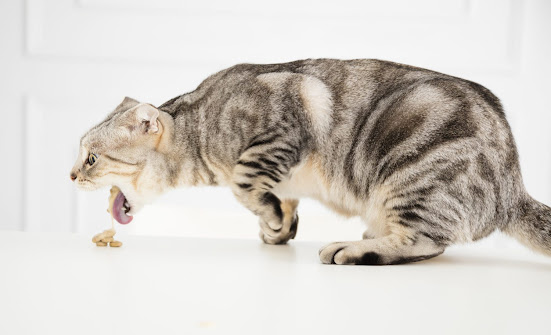picture : www.ovrs.com
Intestinal worms are a common problem among cats. There are several types of intestinal worms that can affect cats, including roundworms, hookworms, tapeworms, and whipworms. Intestinal worms can cause a range of health problems in cats, including weight loss, diarrhea, vomiting, and anemia. Here are some of the common characteristics of a cat with intestinal worms:
- Poor coat condition: One of the common signs of intestinal worms in cats is a poor coat condition. Cats with intestinal worms may have a dull or scruffy coat, as the worms may be taking nutrients away from the cat’s body.
- Weight loss: Another common characteristic of a cat with intestinal worms is weight loss. Intestinal worms can cause cats to lose weight, even if they are eating a normal amount of food. This is because the worms are consuming the cat’s food and nutrients.
- Diarrhea: Intestinal worms can cause diarrhea in cats. The diarrhea may be watery and contain mucus or blood. The cat may also have difficulty controlling their bowel movements.
- Vomiting: Cats with intestinal worms may also vomit frequently. The vomit may contain worms or appear frothy.
- Pot-bellied appearance: Some cats with intestinal worms may have a pot-bellied appearance. This is because the worms are causing the cat’s abdomen to become swollen and distended.
- Anemia: Intestinal worms can cause anemia in cats. Anemia is a condition in which there are not enough red blood cells in the cat’s body. Cats with anemia may appear weak or lethargic and may have pale gums.
If you notice any of these characteristics in your cat, it is important to take them to the veterinarian for a check-up. Your veterinarian can perform a fecal test to determine if your cat has intestinal worms and can recommend the appropriate treatment. Regular deworming can help prevent intestinal worms in cats. It is also important to keep your cat’s environment clean and free of feces to help prevent the spread of intestinal worms.


